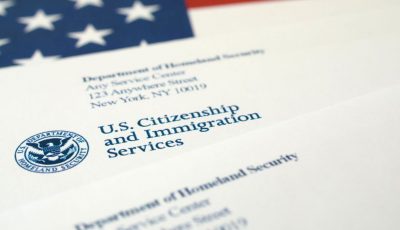‘DHS, USCIS can resolve issue’
The issue surrounding the more than 1,000 individuals under the categorical parole program and those holding employment authorization documents in the CNMI—who are at risk of losing their legal immigration status by June 29 this year—can be resolved either by law or administratively.
This was stressed by Lt. Gov. Arnold I. Palacios yesterday, soon after signing of the NMI-Philippine Friendship Month proclamation at the Office of the Governor.
He pointed out that the issue can be addressed by either a law like H.R. 559, which Delegate Gregorio Kilili C. Sablan (Ind-MP) introduced in U.S. Congress, or through an administrative action of the U.S. Department of Homeland Security and U.S. Citizenship and Immigration Services.
“Either pass the legislation or USCIS and DHS would be able to address the issue administratively. We’re very hopeful,” he said.
USCIS terminated the categorical parole program for certain individuals in the CNMI last Dec. 27. Individuals who are under the parole authority have until June 29, 2019—the end of the 180-day transitional window—to either depart the islands or obtain other legal status.
Soon after signing yesterday’s proclamation highlighting the friendly ties between the CNMI and the Philippines, Palacios said that federal policies concerning immigration is one of the challenges that both the CNMI and the Filipino community in the Commonwealth face in their relationship. “We can overcome this and continue with this enduring relationship.”
In a meeting with Sablan last Monday, the issue surrounding the categorical parole program was one of their topics.
“The humanitarian parole is a major issue right now, with some of these visas expiring. That was actually an issue that was also brought up in the 902 talks,” Palacios said. “[Sablan] has a legislation in [the U.S.] Congress. He is hoping that things would begin to fall into place to address the issue before the June deadline. We are very hopeful that he is going to be able to do something in Congress.”
Sablan’s H.R. 559, or the Northern Mariana Islands Long-Term Legal Residents Relief Act, aims to save the immigration statuses of 1,038 individuals in the CNMI who hold humanitarian paroles and employment authorization documents. The bill is still awaiting further action in the House; it has been referred to the Subcommittee on Immigration and Citizenship.
Those affected by the issue are immediate relatives of U.S. citizens and other stateless individuals, CNMI permanent residents and their IRs, IRs of citizens of Freely Associated States (the Federated States of Micronesia, the Republic of the Marshall Islands, and the Republic of Palau), and caregivers of CNMI residents.
According to Palacios, Sablan remains hopeful that things will move forward. “He [Sablan] is hoping that things would begin to fall into place to address the issue before the June deadline. We are very hopeful that he [Sablan] is going to be able to do something in the U.S. Congress. [H.R. 559] is still in the House; it might get out of the House pretty soon.”
Palacios concedes that there is a possibility that H.R. 559 might not be able to make it to the U.S. Senate, “and he [Sablan] is hopeful that he may be able to address it administratively with DHS.”
Palacios said that Sablan is doing his best to get something done in Washington, D.C. before the June deadline. “Of course, one of the glitches that he pointed out to me is immigration packets that the White House is going to roll out soon. He insisted that he will continue to work on this. He is actually on his way back to D.C. with Congress going back in session, where he would work on some pressing issues—to get some results before the end of June.”
Eli Arago, the honorary consul of the Philippines in the CNMI, who has been in the CNMI for almost 34 years, thanked Palacios for the update. “I know there are a lot who are worried about their status. Hopefully, before the expiration, something will be done, because a lot of them have been here for so long.”
In related news, lawyer Samuel Mok advised that he does not represent Itos Feliciano or any group of foreign workers. Feliciano, a foreign worker advocate, said in a Facebook post that he had sought the assistance of Mok and he is collecting $100 each in order to pay the lawyer’s retainer.



























